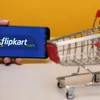[YS Exclusive] Adarsh Menon, Head of Private Labels, explains how Flipkart uses tech to ensure speed and scale in the business
In an exclusive conversation with YourStory, Adarsh Menon, Head of Private Labels, Furnishings, and Electronics, Flipkart, talks about why the ecommerce giant decided to build private labels and how tech has helped them scale at speed.
Flipkart, today, has one of the strongest private label brands in India. In two-and-half years, the ecommerce giant has added over 14 brands with a selection of over 10,000 products in private labels. These are available across 300 of Flipkart’s categories, and have garnered strong interest from Tier II and III markets. Close to 65-70 percent of Flipkart’s business comes from these markets.
But this isn’t Flipkart’s first brush with this business. The ecommerce platform had tried its hand at private labels earlier (around 2014) with ‘Digiflip’ tablets, ‘Flippd’ apparel, and ‘Citron’ home appliances. The experiment failed to make waves then.
Flipkart’s second innings in private label began in December 2016, after Adarsh Menon took over as the Head of Private Labels, Furnishings, and Electronics, from his previous position as VP of Electronics and Auto. He had earlier completed a 12-year stint at HUL.

Adarsh Menon, Head of Private Labels
The reason was simple. For any offline or online retailer, exclusivity matters the most in terms of brands and collections to get repeat customers. There are obvious benefits of private labels, and after an internal assessment, the Flipkart leadership decided to build a private brand that was successful, sustainable, and scalable.
But this time around, they decided to begin with research and dig deep. Flipkart realised that most successful private brands globally were offline retailers. The reasons they had a private label was largely to do with higher margins and profitability. That was the single biggest use case.
As an online platform, Flipkart had more use cases. And the manner in which we think of the business, brands, and categories can be different. This is when Flipkart decided to use their tech and reviews to build a stronger presence in private labels. In an exclusive conversation with YourStory, Adarsh Menon explains how.
Edited excerpts of the interview:
YourStory: How did you decide on building private labels?
Adarsh Menon: We had over 100 million customer reviews, and when we talk about product selection on Flipkart it is again over 150 million. The searches are over 50 million. This was unfiltered large-scale information.
We decided to look at what customers were saying about categories on the platform, and launch products that solved for the customer need gap. This need gap means that customers want certain kinds of products, features, or, specification, and they aren’t available. These gaps are on price, affordability, products, quality, and specifications, or even just lack of a trusted brand on the platform.
All of our private labels are focused on solving for the customer need gap. This told us that while we might have over 150 million-plus products on the platform, but customers want more. They want more products or the same products to have more features.
YS: How did technology aid you in this endeavour?
AM: Being a tech platform, we thought of building something that would take customer insights. We gave our engineering team a brief to develop algorithms that analyse the millions of reviews and feedback on the platform, and present this data in a manner that can be productised. It led to the creation of the in-house Review Analyser. It is a global best practice tool.
Anybody on the team can log into the tool, play around with the feedback, and slice and dice it in the way they want. For example, if you take a category like washing machines, this tool analyses every single piece of a customer’s information on washing machines, picks up exactly what the customer is saying, runs algorithms, and throws up data.
The tool works on algorithms, filters all feedback, and presents it in a way that helps us develop a range of products in-house. We believe that 99 out of 100 products made in India are developed on syndicated consumer research. This is done based on a sample size, and many times all customers do not fall under that sample size. Also, this survey generally is dated. And today, consumer wants and needs are changing at a faster pace.
So our Review Analyser gets 100 percent unfiltered customer feedback and uses it on a real-time basis. For example, if yesterday over 100,000 customers come and talk about washing machines on Flipkart, the tool updates this recent feedback on a real-time basis and I get it immediately.
YS: How big is the team and what does it do?
AM: While I cannot disclose the team size, I can say that the team has been designed uniquely. One part of the team designs and develops the products using the Review Analyser. Another one works with the engineering team, and helps understand and build customer insights. There also is analytics, which plays a big role, as we use a lot of data.
YS: How do you decide on the target audiences for the private labels?
AM: India is a vast and diverse country, and the customer landscape is different. No two consumers think alike. We think we should have offerings for every kind of customer. There is a need for multiple brands. There is no specific audience we decide on and target; anybody who shops on Flipkart and reads reviews is the target audience.
Targeting audiences is a relevant question for any other brand in the country, as most go after a certain target group, but we don’t do that. Every single customer on the Flipkart platform, which is over 160 million, is a potential customer for a private brand. All of them come and share their feedback with us, which in turn, is pushed into the Review Analyser tool.
Currently, we have a total of over 14 private brands, and the brands that we hold the merchandising and distribution licences for. These brands play across over 250 to 300 categories.
However, we do use our brands to differentially position our offerings to the consumer. If you look at consumer durables as a category, we have a private label, MarQ, and we also have a partnership with Motorola for Smart TVs. We believe that with these we offer differentiated products and reach out to a wider set of consumers.
YS: How do you create awareness and trust?
AM: The core philosophy we follow is that all private brands should borrow from the mother brand, Flipkart. Today, we are one of India’s most trusted and reliable brands. Any product that we make is associated with the Flipkart brand name. We build it in the nomenclature because we want the customer to know that this is a Flipkart product and so all the trust that you have towards the mother brand should translate into the product.
However, the one challenge we do face is a lot of perception comes into play. Since most private brands reflect on the mother brand, the top-of-mind thought in some segments is that these brands have may not be as good as established brands. We look at customer franchises to bring in reviews and ratings. Once that happens, the label sees growth. The challenge is to build the product up in the initial two-three months.
We also work on showcasing categories. Some categories need a lot of technical information, and then there are impulse purchases…so the showcasing of these works accordingly.
YS: What are your plans for the future?
AM: We believe we are on to a good formula and framework, and that is reflected by how customers have accepted the offerings. Especially the customers of Bharat, an important cohort. They love the products and are happy with them.
We will keep building in customer insights, keep going wider and deeper, and sharing those insights with our sellers and product team.
(Edited by Teja Lele Desai)


![[YS Exclusive] Adarsh Menon, Head of Private Labels, explains how Flipkart uses tech to ensure speed and scale in the business](https://images.yourstory.com/cs/2/a9efa9c02dd911e9adc52d913c55075e/AdarshMenon1568890688530png?mode=crop&crop=faces&ar=2%3A1&format=auto&w=1920&q=75)

![[Exclusive] Flipkart to launch 165 more categories in private label this year (and more)](https://images.yourstory.com/cs/wordpress/2017/01/Kalyan-1.jpg?fm=png&auto=format&h=100&w=100&crop=entropy&fit=crop)





